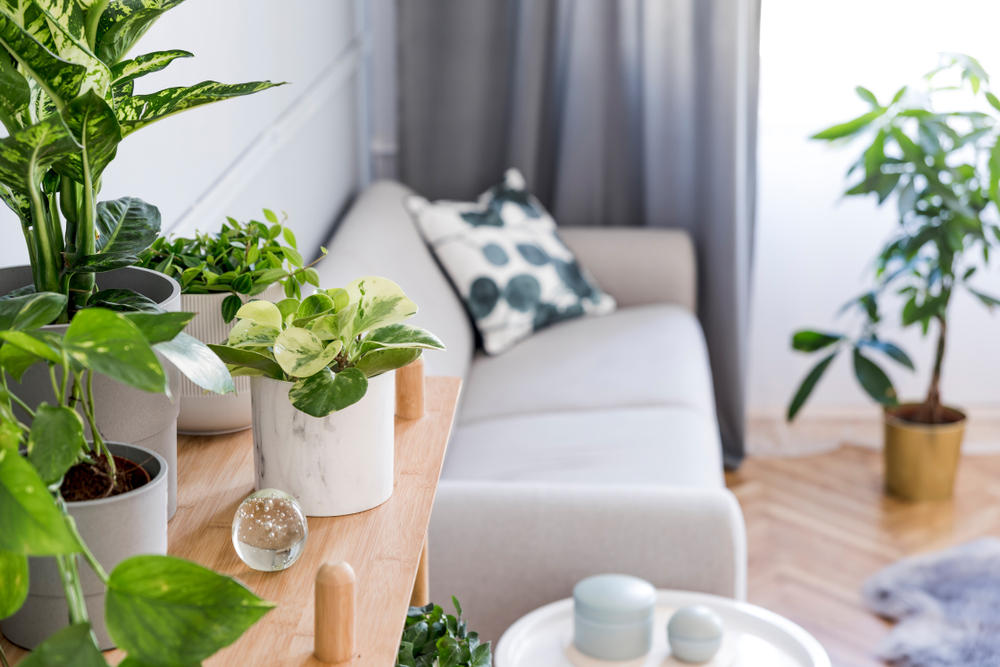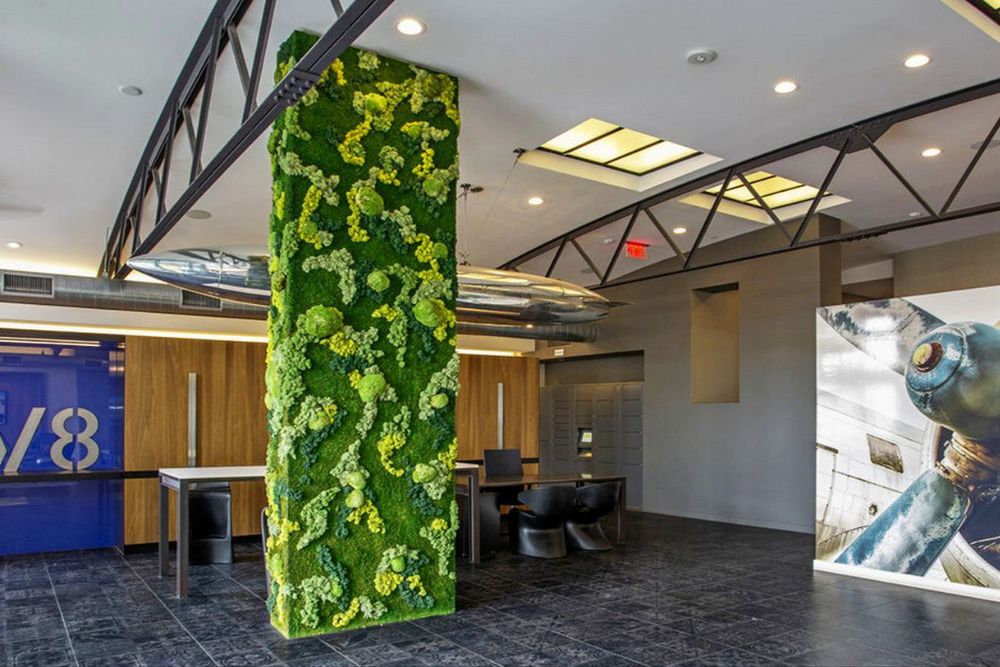With the world becoming more “green”, people are actively altering their homes to be more eco-friendly. Indoor spaces are being remodeled to have better insulation and energy-efficient doors and windows. Unfortunately, while this is reducing an individual’s carbon footprint by lowering electricity consumption, it’s also increasing the amount of indoor air pollutants that get trapped inside homes. Chemicals like benzene, ammonia, and formaldehyde can be introduced into your home from household items and pollute your indoor atmosphere without any visual warning. Common products such as wall paint, chemical cleaners, new carpets, and even pressed-wood furniture can potentially release these toxins into your air. Fortunately, there are natural air filters you can have that will filter out the pollutants and enhance the air quality of your space: houseplants! According to NASA’s Clean Air Study, certain indoor plants perform better than others at removing volatile organic pollutants. We created a list of our top six, best air filtering houseplants based on NASA’s data, so that you can improve the air quality of your home or commercial space.
1. Golden Pothos (Epipremnum Aureum)
Studies conducted by NASA have shown that Golden Pothos plants, also known as Epipremnum Aureum, are one of the most effective plants for eliminating formaldehyde. It’s also a great filter for carbon monoxide. Besides removing dangerous chemicals from the air, this plant grows quickly and is super hardy! Pothos is one of our favorite plants to recommend because it does well in most lighting situations if watered appropriately.

Golden Pothos (Epipremnum Aureum)
2. Dracaena Warneckii (Dracaena Deremensis)
The Dracaena Warneckii has long, vibrant green leaves with a bright yellow border. The Warneckii grows upward from a central stalk and looks great as a single specimen in offices and homes. It can easily thrive indoors with a small amount of sunlight. This plant is excellent at eliminating trichloroethylene, a chemical that comes from varnishes and solvents. Did you know that this plant can grow over ten feet tall? Don’t worry; pruning it will help keep it short if you prefer!

Dracaena Warneckii (Dracaena Deremensis)
3. Bamboo Palm (Chamaedorea seifrizii)
According to NASA, the Bamboo Palm is one of the best air filtering houseplants for trichloroethylene and benzene. This indoor palm plant is somewhat smaller than other types of palm trees, so it is perfect for homes and commercial places that are low on space! This plant also releases a large amount of moisture into the air, making it the ideal natural humidifier for your space!
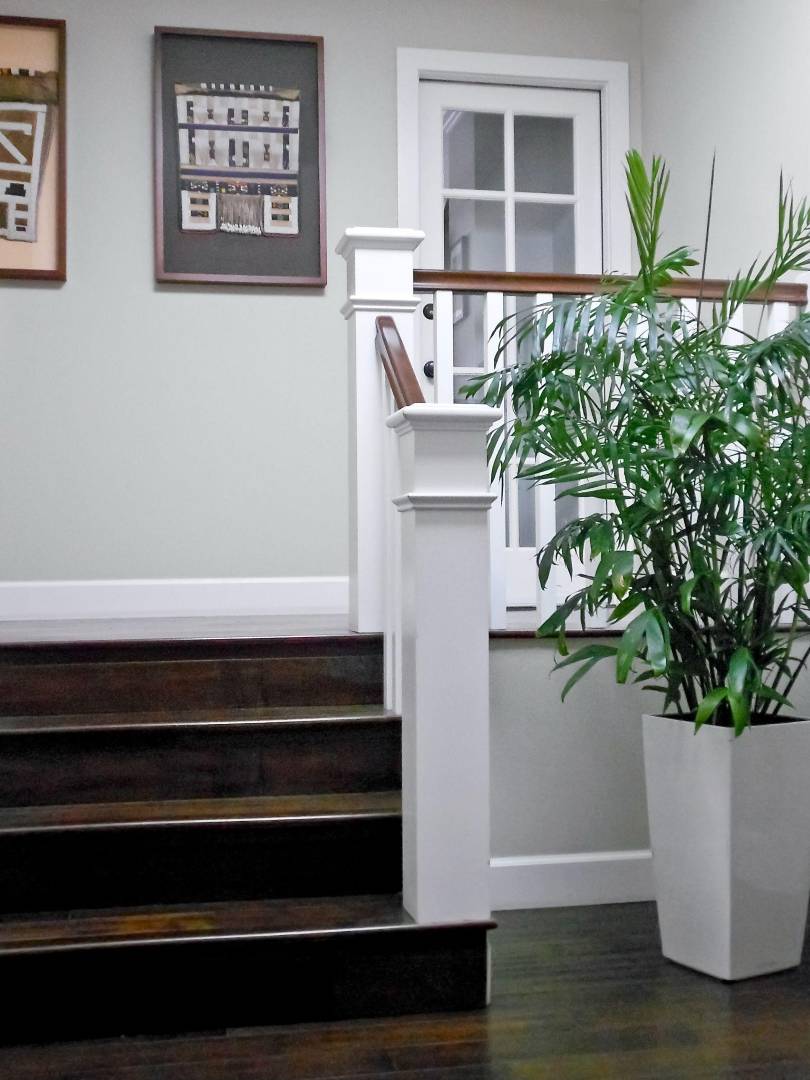
Bamboo Palm (Chamaedorea seifrizii)
4. Dragon Tree (Dracaena Marginata)
The Dragon Tree is a really popular plant for homes and offices due to its contemporary and stylish look. However, did you know that this plant is also an effective air purifier? It’s great absorbing xylene—a chemical released from cigarettes, paints, and car exhaust. Due to this plant requiring very little light, it can be placed in almost any space that is absent of windows.
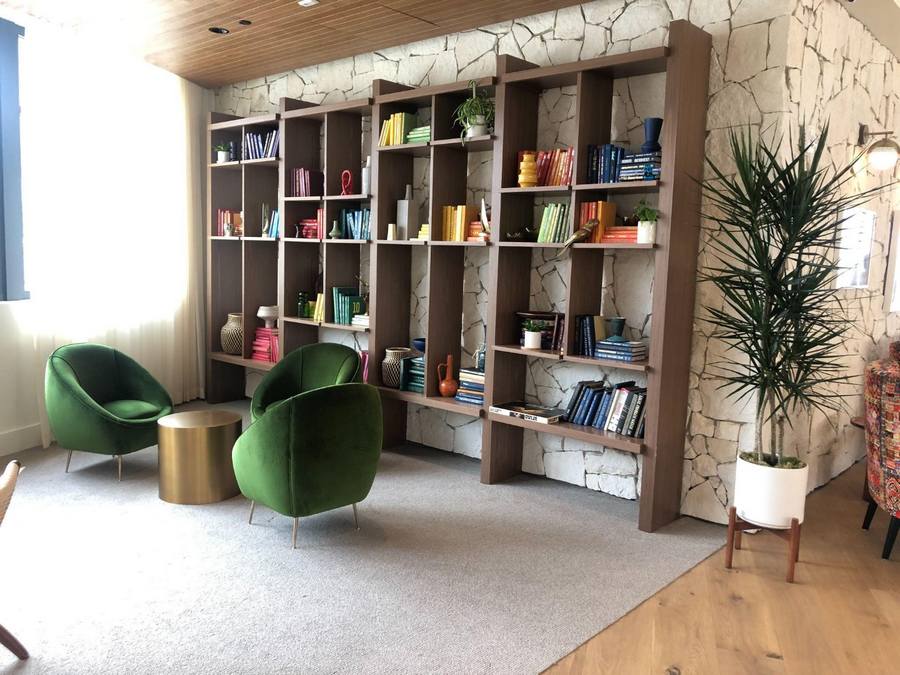
Dragon Tree (Dracaena Marginata)
5. Snake Plant (Sansevieria Zeylanica)
The Snake Plant, also known as the “Mother-in-laws tongue,” is a stemless evergreen that has become a favorite for modern interiors. This variety has sword-shaped leaves that are deep green with light gray-green horizontal stripes. This plant is unique in that it absorbs carbon dioxide and releases oxygen at night. It’s a great filter of formaldehyde, a chemical that is usually found in carpets and wooden furniture. This plant is extremely low-light tolerant, so it’s perfect for those dark corners in homes and offices.

Snake Plant (Sansevieria Zeylanica)
6. Peace Lily (Spathiphyllum)
When it comes to plants that are visually appealing, peace lilies are usually at the top of the list! Besides being beautiful with their unique white flower, these plants also boast one of the highest transpiration rates of the list of air-filtering plants! They’re especially good at removing trichloroethylene, benzene, acetone, and alcohols.
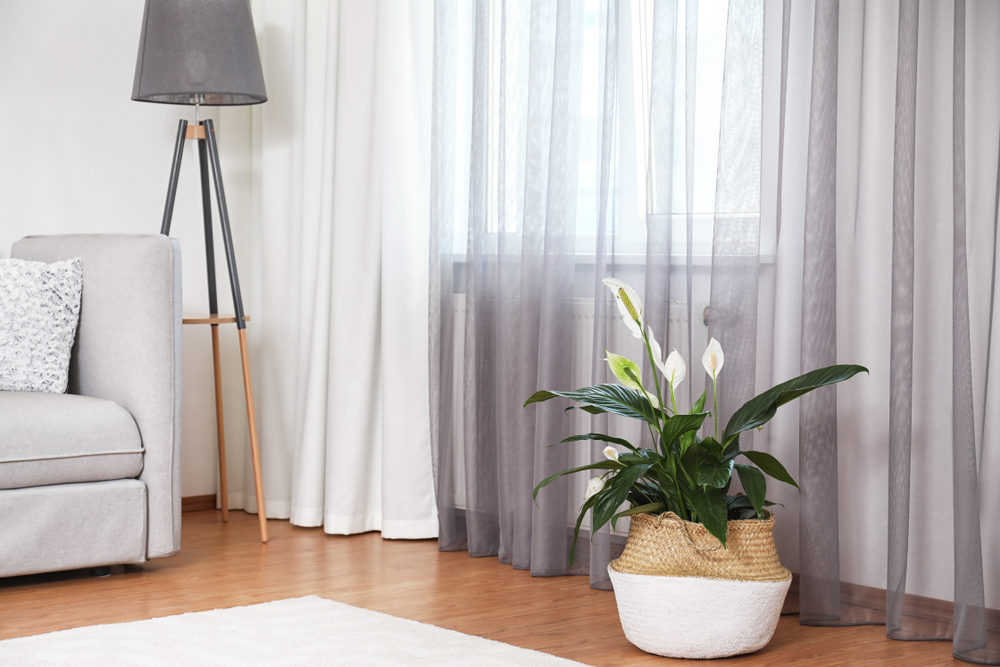
Peace Lily (Spathiphyllum)
Did you know that, on average, Americans spend approximately 90% of their time indoors, where the concentrations of some pollutants are often 2 – 5 times higher than typical outdoor concentrations? Neglecting the indoor air quality of your space can result in serious consequences in the long run. Asthma, allergies, illness, and frequent headaches are just a few of the many issues that come from airborne particles. We hope this blog helped you see how air filtering houseplants can help deter these problems in a safe and natural way. To get air-filtering plants for your home, office, or commercial space, give Greenleaf IPS a call at (858)-488-0611 or click here to explore our entire plant catalog!

